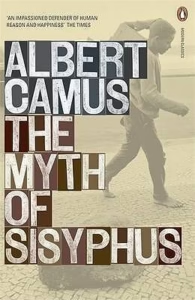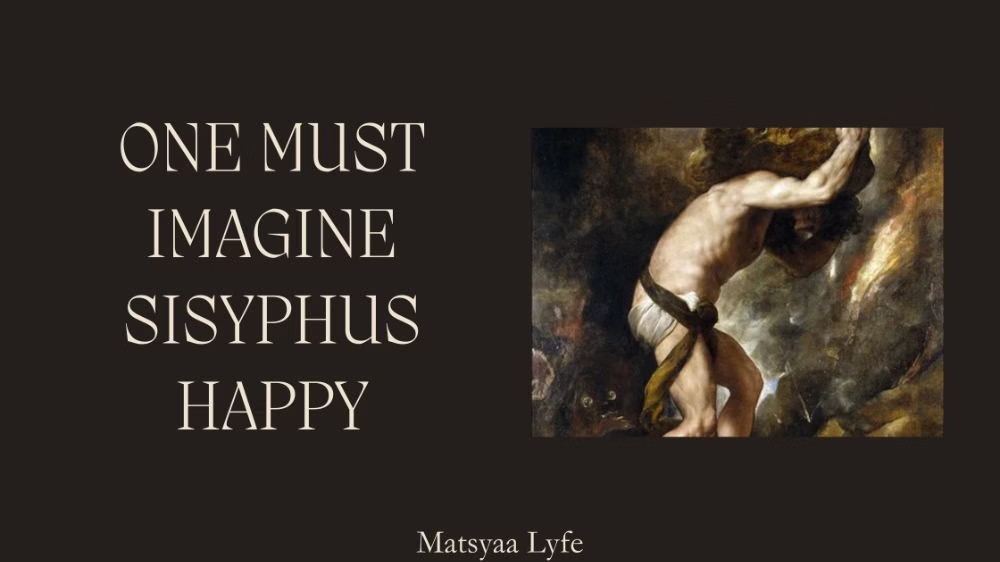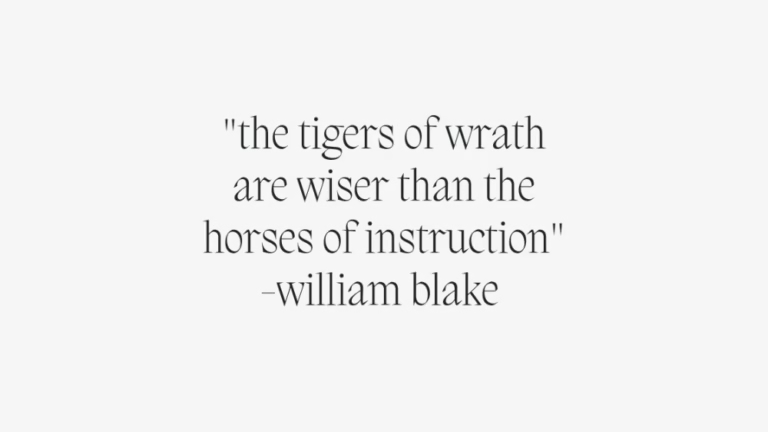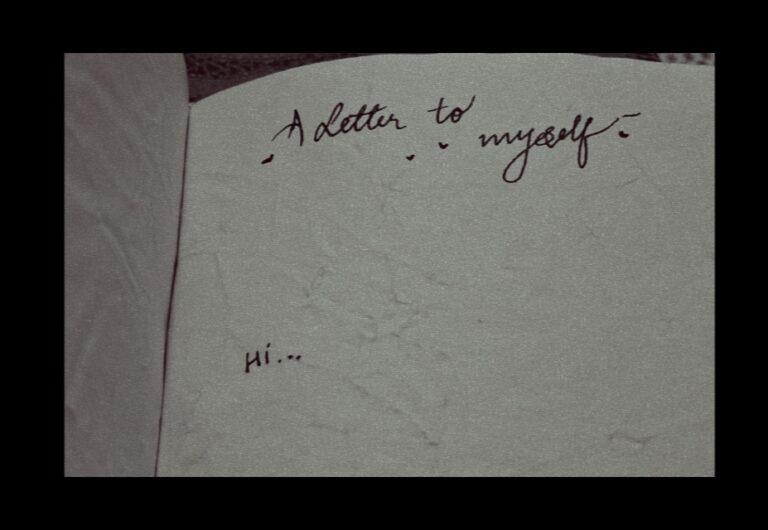“One Must Imagine Sisyphus Happy”—Albert Camus
Albert Camus’ famous essay ‘The Myth Of Sisyphus‘ ends with the groundbreaking line ‘One must imagine Sisyphus happy.’ What does this mean? What happiness can there be in endless torment, in torturous routine? Who even is Sisyphus? Here is an answer to all your questions about Camus’ absurd hero—a human being.
Table of Contents

The Greek Myth of Sisyphus
The Greek god Hades is the god of the underworld—or hell—which is also called Hades after him. Sisyphus was a man who wanted to cheat death. There are many versions of the story, each one different.
Opinions differ as to the reasons why he became the futile laborer of the underworld. To begin with, he is accused of a certain levity in regard to the gods. He stole their secrets. Ægina, the daughter of Æsopus, was carried off by Jupiter. The father was shocked by that disappearance and complained to Sisyphus.
He, who knew of the abduction, offered to tell about it on condition that Æsopus would give water to the citadel of Corinth. To the celestial thunderbolts he preferred the benediction of water. He was punished for this in the underworld. Homer tells us also that Sisyphus had put Death in chains. Pluto could not endure the sight of his deserted, silent empire. He dispatched the god of war, who liberated Death from the hands of her conqueror.
The version I became familiar with was where he tried to cheat death by holding captive Thanatos, the god of death, and ended up disturbing the whole balance of life and death. Without death, there cannot be life either and soon enough the gods found out about his crime.
Hades, god of the underworld, gave a brutal punishment to Sisyphus for what he had done. He was left in the deep ends of hell and he was cursed with a never ending, futile task.
He punishment was a rock that he had to push up a hill. As soon as he pushed it off, his punishment would be over. So he put all his strength behind the massive rock and began climbing up the hill. But he was almost to the peak when his strength gave way and he couldn’t push it up any more. The rock slid from his grasp and went rolling down the hill.
He went back, climbed up, watched the rock fall down from near the peak, over and over and over again.
Never ending torment—this was his punishment. To work forever for something he could never achieve. Futile action and the bone deep exhaustion of knowing you couldn’t ever escape this—the hope of trying one last time.
But Albert Camus presents Sisyphus not so miserable as he would seem. Here, Sisyphus is not a man tormented by his burden. Instead, his burden is what gives him purpose. It is what makes his happy.
We Are All Sisyphus
Ultimately, aren’t we all Sisyphus? Don’t we all have our rocks and our hills? Don’t we start over each day, again and again and again, and spend an eternity trying to find what solace we can in that routine?
Some people, you might say, have no routine. Some people don’t let any rock tie them down—no single home, no permanent town, no family they see every single night. They surely are not following in the old worn path of Sisyphus, are they? But that’s the point. The metaphorical rock isn’t a thing you are stuck doing over and over again.
Those people that have so cleverly escaped routine still cannot escape this metaphor. We might pick up a new job every year, or travel to a new city every decade or might change the our lifestyle whenever we feel like it, but there is routine even in recklessness. The very act of doing—doing anything—ties us to this world and its circle of day and night and day again.
We all have our own rocks. Not really in the literal sense, if you think about it. It’s not like we do only one thing day in and day out. Many people have several hobbies, more than one jobs, different things to do. Many people travel a lot. Others keep jumping from one job to the next. Others find other ways to keep their life interesting, like movies and vacations and
But at the core of it all, at the very deep center of our lives, we are simple creatures. We wake up, eat, go to work, eat, have some fun, spend time with family, go out or stay in bed to read, and we sleep and we wake up again. We sleep and we wake up and we sleep and—
Our life is bound in a circle of action. We cannot escape the never ending loop of purpose.
One Must Imagine Sisyphus Happy
There is terrible, unimaginable boredom to routine. I get it! But let’s try to look at this from the other side of the hill. Let us imagine a Sisyphus who succeeds. A Sisyphus who manages to push the rock past the slope and down towards the other side. Or better yet, let us imagine a Sisyphus who breaks the curse, damn all consequences, and crosses to the other side of the hill without the rock.
This Sisyphus doesn’t look back as he climbs, rock forgotten at the bottom, because he can and because no one stops him. He reaches the peak because no rock weighs him down anymore. He goes downhill.
What is there? What does he find? Hades is an empty stretch of land that ends nowhere for him. He could try to find his way back into the world of the living. He could escape his personalized Hell, but all he sees is never ending land.
He could sit on the top of the hill, perhaps, forever. But forever is a long time to spend without doing anything. We are simple beings, but the least simple thing about us is our inconsolable need to find a purpose, to do, to act. We cannot just be—that would mean decay. We need to act. No work is done only to reach its end. There is value in the process. There is happiness in verbs—acting, doing, living.
Sisyphus goes back up the hill, finds his rock and begins again the climb.
Camus says that one must imagine Sisyphus happy. One must imagine him like this—a human stuck but content.
There is no other choice. An unhappy Sisyphus means an unhappy me and an unhappy you. Because what are we doing but what he is doing? We all have our own rocks.
We all have our rocks that we spend our lives trying to push off the hill. We all have something we wake up for, something we dream about when we go to sleep. And this rock changes shape every now and then. It might be money or a home or a scholarship or love or that promotion or kids. It might be anything and everything, but without this rock we are nothing.
There is nothing to strive for, nothing to live for without this rock. And you could leave your rock behind if you want. Nothing will stop you. You could climb the hill empty handed, but all you will find on the other side is an emptiness that cannot be filled.
One must, therefore, imagine Sisyphus happy. There is happiness to be found in genuine work and purposeful activity.
I leave Sisyphus at the foot of the mountain! One always finds one’s burden again. But Sisyphus teaches the higher fidelity that negates the gods and raises rocks. He too concludes that all is well. This universe henceforth without a master seems to him neither sterile nor futile. Each atom of that stone, each mineral flake of that night-filled mountain, in itself forms a world. The struggle itself toward the heights is enough to fill a man’s heart. One must imagine Sisyphus happy.






